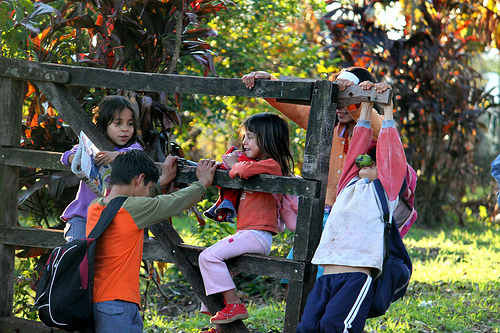 In response to recent inflation, teachers unions in Argentina demanded a pay increase of approximately 35% for their members. Without an agreement between unions and the government, teachers went on strike on March 5th, postponing the beginning of school for children in 19 of the country’s 24 districts.
In response to recent inflation, teachers unions in Argentina demanded a pay increase of approximately 35% for their members. Without an agreement between unions and the government, teachers went on strike on March 5th, postponing the beginning of school for children in 19 of the country’s 24 districts.
“Because of the devaluation [in January] and inflation in December and January we have been left with a low salary,” explained Mario Almiron, head of the Sadop union which represents 75,000 private teachers.
Several provinces reached agreements with their teachers’ unions, granting raises of around 30% to all teachers. Yet students in many other provinces have been out of school for over a week.
In the Buenos Aires province, the most populated in the country, nearly 4 million children have been affected. Deputy Governor Gabriel Mariotto acknowledged that teachers’ demands were “fair” but condemned the ongoing strike due to the impact it has had upon students.
After rejecting a government proposal for a 30.9% salary increase, union officials in Buenos Aires said they “will carry on with the struggle until they give us a reasonable offer.” Mira Petrocini, another union representative, explained “there was no negotiation here. The government came with a closed proposal. We have not been able to intervene in the decision regarding our salary.”
Unions have demanded salary increases in response to extreme levels of inflation in the country. With concerns for a potential currency crisis, the government began the year by devaluing the Argentine peso by approximately 20%. Private sector forecasters have predicted that this resulted in inflation around 30%. The government has tried to control this by limiting salary increases and by imposing price controls.
“People have lived through so many inflationary processes that an escalation in prices is not just economic, but sociological,” explained Carlos Germano, a political analyst.
Talks between teachers’ unions and government officials have been difficult. National government negotiators initially offered salary increases of 22%, but were rejected. Government officials worry that agreeing to these demands would set a dangerous precedent for other salary negotiations scheduled with other unions in late March and April. They worry that raises would place an extreme strain upon national and provincial budgets if teachers and other government employees were granted a 30 to 35% raise.
Creative Commons Love: Hamner_Fotos on Flickr.com
Written by Amanda Lubit